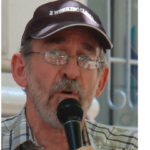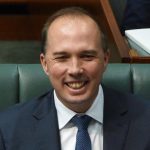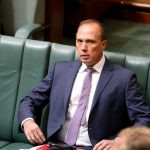Canada Accepts First Australian Refugee

In what’s believed to be a world first, an Australian citizen has been given asylum in a foreign country. As revealed by the ABC last week, Canadian authorities granted refugee status to a former Australian police informant who infiltrated an outlaw motorcycle gang.
On 29 September last year, the Immigration and Refugee Board of Canada (IRB) found that Stevan Utah’s life would be under threat immediately on return to Australia, as there are multiple contracts out on his life.
Blowing his cover
After having known members of the Bandido motorcycle gang for a number of years, Mr Utah turned informant. He provided the Australian Crime Commission (ACC) with information relating to serious crimes that gang members had been involved in, including a murder.
But in a 2006 media release, the ACC divulged that it had a source in relation to the Bandido bikie gang. And it didn’t take club members too long to deduce that the likely informant was the now 50-year-old Utah.
The IRB heard that Mr Utah was a paid and registered informant, who was provided certain legal immunity whilst operating on behalf of the ACC.
However, the tribunal found that following Utah’s outing, the nation’s top crime agency didn’t provide him with protective custody. The ex-police informant subsequently fled the country and went into hiding.
No protection in his country of origin
Mr Utah was assisting the ACC as part of its outlaw motorcycle gangs intelligence operation, which was launched in July 2005. At the time, it was conducting investigations into 35 bikie gangs around the country. In 2016, the Australian Criminal Investigation Commission replaced the ACC.
IRB member Jodie Schmalzbauer said that “Australian authorities failed to adequately protect” Utah. She further stated that this failing was part of a “broader pattern” caused by “corruption, ineptness and structural difficulties” within the Australian system, which leaves informants with no protection.
And as no Australian agency gave evidence at the hearing, Ms Schmalzbauer found there was no reason for the IRB not to accept Utah’s claim that he had no access to any relocation or witness protection program.
According to Ms Schmalzbauer, the relevant Australian authorities were “either unwilling or unable to provide protection to him at that time.”
The IRB also heard that Utah’s lawyer Chris Hannay had exhausted all options trying to find his client protection via agencies including Queensland police. The tribunal said effective protection for informants isn’t forthcoming when the state is confronted with “motivated and capable” gangs.
A police informant
A former soldier, Mr Utah was never a member of the Bandido bikie gang. But, he became acquainted with the Australian president of the influential crime group in the mid-1990s. And he installed security systems for them as part of his employment.
Utah witnessed a number of bashings and murders that involved the Bandidos. One of which was the shooting murder of 54-year-old Geelong security guard Earl Neil Mooring in October 2000. Following the incident, Utah witnessed the dumping of the victim’s body in Goulburn.
In 2004, Mr Utah was arrested for Mooring’s murder, but the charges were later dropped. And he led police to Mooring’s body. Over his time working as an informant he provided the police with inside information relating to drug and firearm trafficking operations.
Following his exposure, Utah fled the country to Canada, and his whereabouts were kept secret. And he was then to spend the next decade in hiding and legal limbo before he was eventually recognised as a refugee.
An abusive delay
Mr Utah is now suing Canadian officials for the long holdup he had to endure whilst waiting to be granted asylum. In June, Utah filed a lawsuit in the Canadian Federal Court against that nation’s immigration department and the Canada Border Services Agency (CBSA) seeking $2.55 million.
Utah claims that two CBSA officers – Darryl Zelisko and Darryl Kane – let his case stall for many years in what amounted to “amounted to an abusive delay constituting a misfeasance in public office.”
Between 2007 and 2015, the officers – who were questioning his eligibility due to his criminal history – failed to take the next step in that process by filing a report with the immigration minister, which would have led to an admissibility hearing. Such a claim is supposed to be filed within three days.
Instead, Utah’s case was suspended until Zelisko was removed from his file in June 2015, which was when Kane told the asylum seeker that he would have to begin his refugee claim all over again.
Over the decade that he had to wait until his case went before the tribunal, Mr Utah was unable to work, open a bank account, or get a drivers licence or a social security number. He states that he’s now suffering multiple mental health issues due to the drawn-out delay.
“When I first came here, the CBSA not only could not believe that a white Australian could be a refugee, they wouldn’t entertain it,” he told the National Post this month. And he added that he was sick of “cynical opinion” regarding who can apply to be a refugee.







